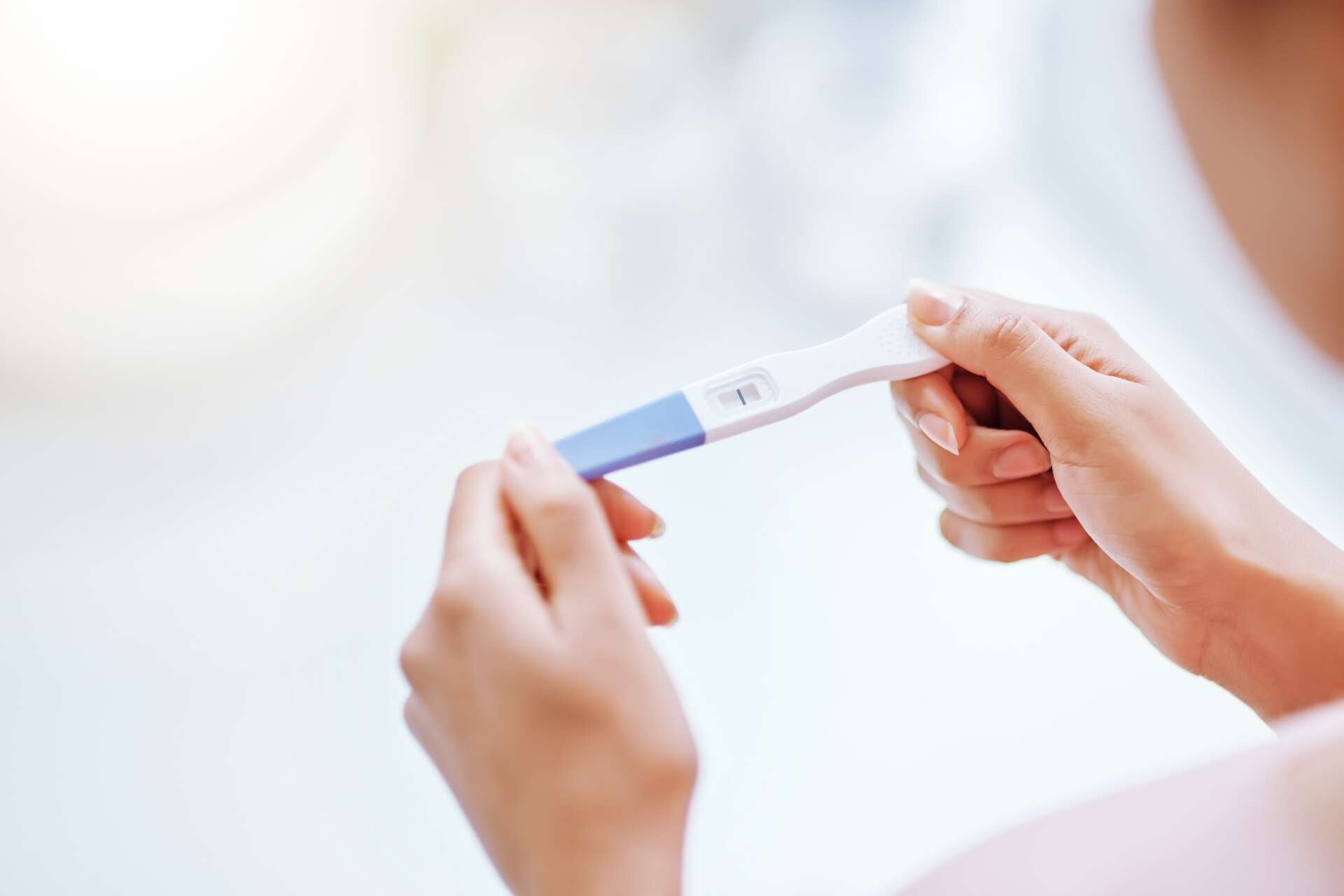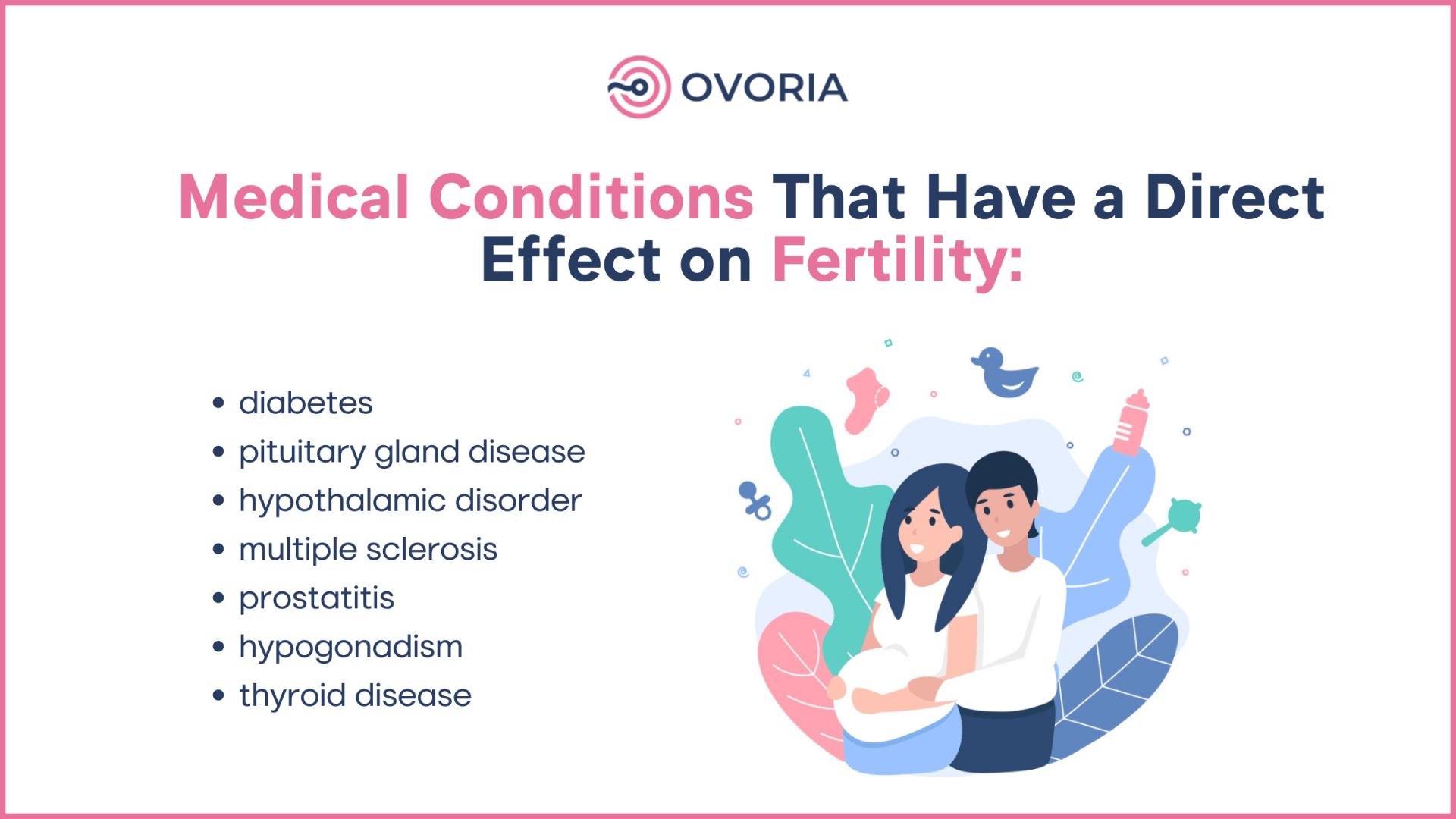גורמים המשפיעים על אי פוריות
כיום, תעשיות הרפואה והתרופות המודרניות הן עצומות. זה נובע מהמספר ההולך וגדל של בעיות בריאות שאנשים סובלים מהן. בעיות בריאות רבות משפיעות על אנשים. מחלות ניוון עצביות כמו פרקינסון, דמנציה, אלצהיימר ורבות אחרות משפיעות על מספר רב של האוכלוסייה המבוגרת. סוכרת, שהייתה בעבר הפרעה תורשתית, מכה כעת את הדורות הצעירים בממדי מגיפה.

סיבוכי פוריות רבים הם השפעה ישירה של גורמי אורח החיים שאנשים מתעקשים לעשות. לא יהיה זה מקום לומר שרבות מהבעיות הללו נגרמות מהדרך בה אנו חיים את חיינו ביום-יום. אנחנו חיים בתקופה של התקדמות טכנולוגית אדירה. כתוצאה מכך, אנו מסוגלים להפוך הרבה משימות שגרתיות לאוטומטיות, ולהשאיר לנו יותר זמן לעשות את הדברים שאנחנו הכי נהנים מהם. עם זאת, התקדמות זו באה גם עם לחץ.
החברה המודרנית גרמה לכך שאנשים רבים ישנים פחות ממה שהם צריכים, מה שמשפיע לרעה על בריאותם. מחסור בשינה תקינה, לרבות ללכת לישון מאוחר מאוד ולא לישון מספיק שעות, הוא גורם משמעותי לבעיות בריאותיות. כשזה מגיע לפוריות, הדבר המצער ביותר הוא שמספר מחלות שונות יכולות להרתיע בני זוג מלהיות מסוגלים להרות. מדאיג כמה מחלות ומצבים רפואיים קיימים הגורמים לפוריות הגבר והנקבה. חלק מהמחלות הללו גורמות לאי פוריות קבועה, וחלק מהן ניתנות לביטול.
מצבים רפואיים בעלי השפעה ישירה על הפוריות
טכנולוגיית רבייה מסייעת
Medical Conditions That Have a Direct Effect on Fertility
Both men and women are susceptible to infertility through illnesses. Here are some of the more common medical conditions that affect fertility:
- Diabetes: The two types of diabetes are type 1 and type 2. Both these types of diabetes are characterized by high levels of sugar in the blood and a lack of insulin production by the body. People with diabetes often have issues with ovulation, which causes excess weight gain and cysts on the ovaries. The body needs to release eggs for conception, but diabetes can not ovulate properly.
- Polycystic Ovary Syndrome (PCOS): This is a hormonal condition caused by an excess of male hormones and a deficiency of female hormones. The hormone imbalance can affect the lack of ovulation. A woman who has polycystic ovaries does not ovulate or does not ovulate regularly. They also have an excess production of androgen, which is the male hormone. PCOS can have a huge impact on female fertility and women's health.
- Endometriosis: This is a painful disease when tissue similar to the tissue that normally lines the inside of a woman's uterus — the endometrium, which grows outside the uterus. Generally, endometriosis involves ovaries, fallopian tubes and the tissue lining pelvis.
- Uterine Fibroids: Uterine fibroids are noncancerous growths of the uterus that often appear during childbearing years and aren't associated with an increased risk of uterine cancer. Some fibroids are so tiny that the average person can't even see them. Other fibroids are big enough to distort and enlarge the uterus so much that they reach the rib cage and add weight.
- Pituitary gland disease: This is one of the many endocrine glands that are responsible for releasing hormones. The pituitary gland gets its instructions from the hypothalamus and signals other glands when particular fertility hormones need to be released in the body. In males, a problem with the pituitary gland can impair the release of the luteinizing hormone (LH), which in turn will affect the production of sperm. When the pituitary gland is affected by a disease or tumor, it hinders the release of hormones. This condition can directly affect male infertility and female infertility.
- Hypothalamic disorder: The hypothalamus is a part of the brain that plays a vital role in both men and women. The hypothalamus controls the production of hormones by the pituitary gland, which can cause numerous complications when functioning incorrectly. A male with a hormonal issue will have problems with sperm production, and a female with a hormonal issue will have problems with ovulation. In both cases, injecting hormones can help regulate the hormones and fix these problems.
- Multiple sclerosis: Multiple sclerosis affects the nerve cells that send signals to the rest of the body. These cells are found in the brain and spine. Women with multiple sclerosis can conceive naturally. They may face some challenges during their pregnancy and delivery. If a person with multiple sclerosis experiences erectile dysfunction, they might require fertility treatment to have children. The sperm is retrieved directly from the testes and inseminated into the female partner.
- Chlamydia: Chlamydia is an STD that is quite common among many young people and can affect fertility in many ways. In women, Chlamydia can lead to pelvic inflammatory disease (PID), damaging the fallopian tubes and hampers fertility. A damaged fallopian tube will be associated with greater chances of an ectopic pregnancy. In men, Chlamydia infections will affect the quality and motility of sperm. When a man has Chlamydia, his sperm go to waste, and he is considered infertile.
- Prostatitis: Prostatitis is inflammation caused by infection of the prostate. Prostatitis is usually curable with antibiotics. The treatment causes infertility in men in about 35% of cases.
- Cushing's syndrome: A hormone produced by the adrenalin glands called cortisol and performs a variety of functions such as assisting in blood pressure regulation, monitoring sugar levels, and keeping the immune system active. Cortisol is the primary stress hormone. Excess of cortisol leads to several health problems like fatigue, depression, and reduced sex drive.
- Hypogonadism: A low testosterone level hinders the production of sperm, which could result in inadequate sperm production and poor quality sperm.
- Mumps: In a few cases, mumps can lead to orchitis; some males may find a slight shrinkage in the size of testicles. Some males with low sperm count will have to undergo fertility treatment to start a family.
- Cancer: Cancer treatment, namely chemotherapy, and radiation have severe effects on the quality of the ovarian reserve in women. And for men, cancer treatment affects the quality of their sperm. Cancer of the uterus or ovaries means that these organs need to be removed to stop cancer from spreading. This results in early menopause and infertility. In males, cancer of the testes means that these organs need to be removed.
- Thyroid disease: An underactive thyroid gland can lead to infertility. Hypothyroidism is when the thyroid doesn't produce enough of the hormones that the body needs. If they are not available, the egg doesn't mature and isn't released from the ovary. Women with hypothyroidism can have problems with menstruation, regulation of proper body temperature, and their metabolism, leading to decreased libido.
- Blocked Fallopian Tubes: This is any blockage in the tubes that prevent an egg from travelling down the uterus and prevent sperm from reaching the egg has a high infertility rate. The fallopian tubes blockage can also affect female infertility.
- Unexplained infertility: this is the most common type of infertility women could face. It's responsible for around 30% of infertility cases. Even after primary infertility medical tests are carried out, the source of female infertility remains a secret.
Many different conditions can affect how likely it is that a woman will get pregnant. Several other sexually transmitted infections can affect reproductive health and cause fertility problems.
Assisted Reproductive Technology
There are many fertility treatments available. It's essential to identify the reason why a woman can't get pregnant before deciding on a cure. Some of these treatments include intrauterine insemination (IUI) and IVF treatment with donor eggs.
After IVF treatment, a woman can take a pregnancy test in a few weeks. Most women become pregnant after one or two attempts, but a small number of people need to undergo more than one attempt to conceive.
מדיניות הפרטיות | הצעה פומבית | מדיניות קובצי | מפת שירות | Ovoria Copyright 2021


